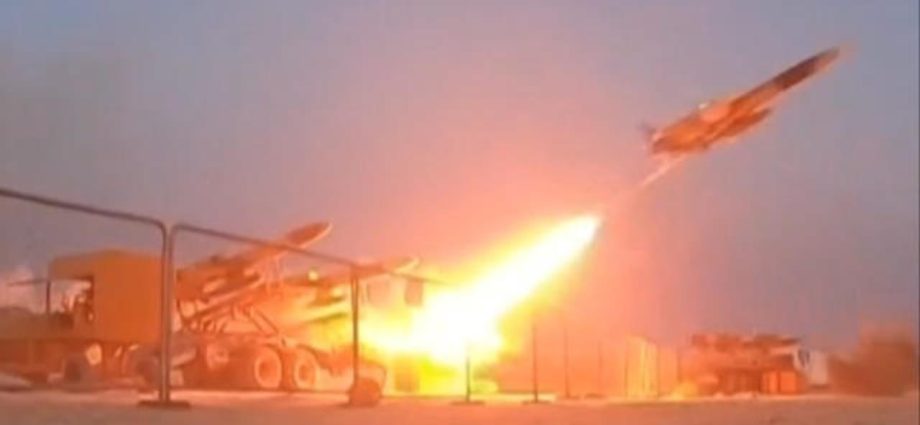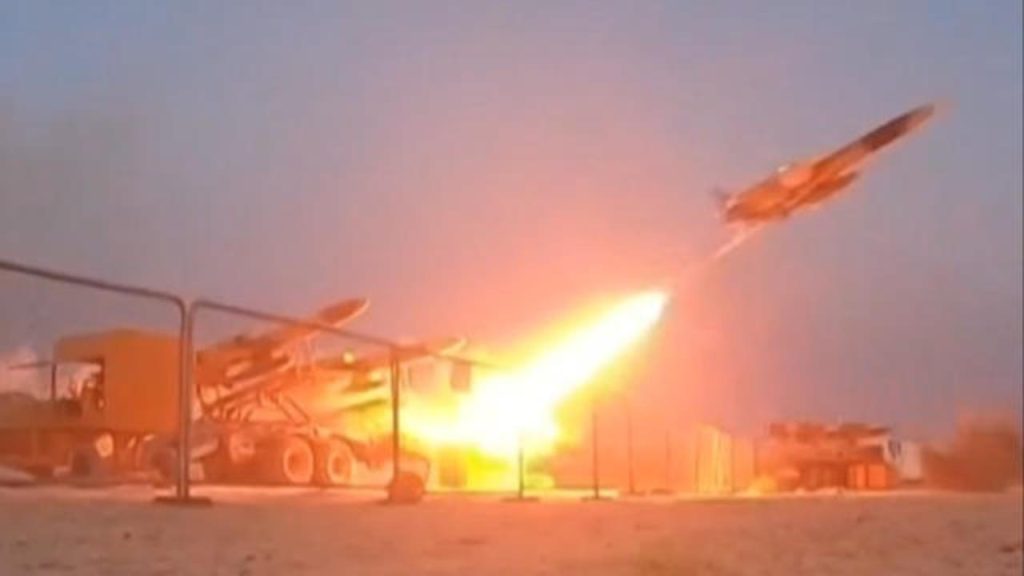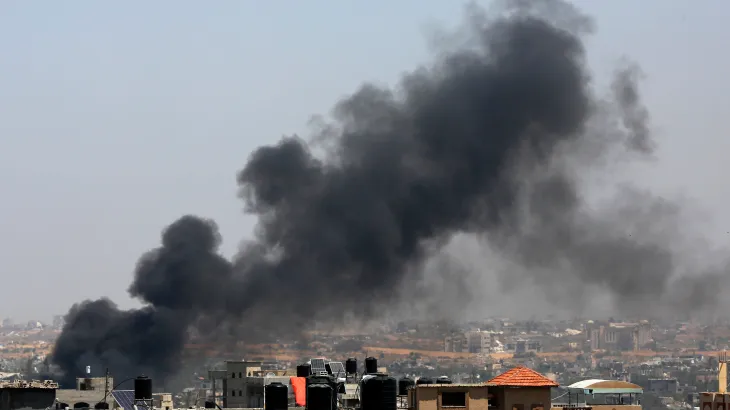Israel says Iran has launched more than 100 drones toward it and says it’s ready to respond.
Iran had launched “missiles and drones on specific locations in the occupied lands.”
Hagari, the army spokesman, said Israel was “prepared and ready” with both defensive and offensive responses.
Iran launched dozens of drones toward Israel late Saturday, Israeli and Iranian officials confirmed, on an unprecedented revenge mission that pushed the Middle East ever closer to a regionwide war.
Israel’s military said over 100 drones had been fired but that its air defenses were prepared for the attack and it was ready to respond. The U.S., with its large troop presence in the region, said it would provide unspecified support to Israel.
“We are monitoring the threat,” the Israeli military’s spokesman, Rear Adm. Daniel Hagari, announced in a nationwide television address, saying it would take several hours for the drones to reach Israel. The Israeli military said it could not confirm if it had intercepted any drones or what their targets were.
The attack marked the first time Iran had ever launched a full-scale military assault on Israel, despite decades of enmity dating back to the country’s 1979 Islamic Revolution.
U.S. forces have downed some Iran-launched attack drones flying toward Israel, according to a U.S. defense official and two U.S. officials who spoke on condition of anonymity to discuss the matter.
The defense official said the effort to intercept the attack was continuing.
Booms and air raid sirens sounded in Jerusalem early Sunday after Iran launched dozens of drones and ballistic missiles toward Israel in an unprecedented revenge mission.
Iran launched dozens of drones toward Israel late Saturday, Israeli and Iranian officials confirmed, on an unprecedented revenge mission that pushed the Middle East ever closer to a regionwide war.
Israel’s military said over 100 drones had been fired but that its air defenses were prepared for the attack and it was ready to respond. The U.S., with its large troop presence in the region, said it would provide unspecified support to Israel.
“We are monitoring the threat,” the Israeli military’s spokesman, Rear Adm. Daniel Hagari, announced in a nationwide television address, saying it would take several hours for the drones to reach Israel. The Israeli military said it could not confirm if it had intercepted any drones or what their targets were.
The attack marked the first time Iran had ever launched a full-scale military assault on Israel, despite decades of enmity dating back to the country’s 1979 Islamic Revolution.
Israel and Iran have been on a collision course throughout Israel’s six-month war against Hamas militants in the Gaza Strip. The war erupted after Hamas and Islamic Jihad, two militant groups backed by Iran, carried out a devastating cross-border attack on Oct. 7 that killed 1,200 people in Israel and kidnapped 250 others. An Israeli offensive in Gaza has caused widespread devastation and killed over 33,000 people, according to local health officials.
Almost immediately after the war erupted, Hezbollah, an Iranian-backed militant group in Lebanon, began attacking Israel’s northern border. The two sides have been involved in daily exchanges of fire, while Iranian-backed groups in Iraq, Syria and Yemen have launched rockets and missiles toward Israel.
Online videos shared by state television purported to show delta-wing-style drones resembling the Iranian Shahed-136 drones long used by Russia in its war on Ukraine. The drones are bomb-carrying and slow-flying. Ukraine has successfully used both surface-to-air missiles and ground fire to target the drones.
Iran has a vast arsenal of drones and missiles. Tehran’s choice of the Shahed-136 drones give Israel and its allies hours to shoot them down. It does not appear Iran used any of its ballistic missiles in the attack, which would pose a greater risk to Israel.
Israel has a multilayered air-defense network that includes systems capable of intercepting a variety of threats including long-range missiles, cruise missiles, drones and short-range rockets.
Hagari, the army spokesman, said Israel was “prepared and ready” with both defensive and offensive responses. But he cautioned that the air defenses are not 100% effective and urged the public to heed safety instructions.
Earlier Saturday, Prime Minister Benjamin Netanyahu warned: “Whoever harms us, we will harm them.”
In Washington, President Joe Biden cut short a weekend trip to his beach house in Delaware to return to the White House. He was set to convene a principals meeting of the National Security Council on Saturday to discuss the unfolding attack, the White House said.
“The United States will stand with the people of Israel and support their defense against these threats from Iran,” National Security Council spokesperson Adrienne Watson said in a statement.
Gen. Erik Kurilla, the head of the U.S. military’s Central Command, was in Israel over the weekend consulting with Israeli defense officials about the Iranian threat. The Central Command oversees U.S. forces in the Middle East, while Israel has a formidable arsenal that includes long-range missiles and F-35 stealth warplanes.
In Iran’s capital, Tehran, witnesses saw long lines at gas stations early Sunday as people appeared worried about what may come next. Dozens of hard-liners demonstrated in support of the attack at Palestine Square.
Lebanon’s state-run National News Agency reported heavy Israeli airstrikes and shelling on multiple locations in south Lebanon following Iran’s launch of drones.
Flight-tracking data late Saturday showed the airspace over Jordan empty, while few flights continued on their north-south routes over Iraq. A sole Middle East Airlines flight from Dubai to Beirut remained airborne over Syria. Lebanon was closing its airspace.



